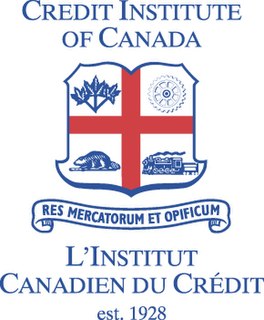Related Research Articles
Professional certification, trade certification, or professional designation, often called simply certification or qualification, is a designation earned by a person to assure qualification to perform a job or task. Not all certifications that use post-nominal letters are an acknowledgement of educational achievement, or an agency appointed to safeguard the public interest.

Insurance is a means of protection from financial loss. It is a form of risk management, primarily used to hedge against the risk of a contingent or uncertain loss.

General insurance or non-life insurance policies, including automobile and homeowners policies, provide payments depending on the loss from a particular financial event. General insurance is typically defined as any insurance that is not determined to be life insurance. It is called property and casualty insurance in the United States and Canada and non-life insurance in Continental Europe.
Liability insurance is a part of the general insurance system of risk financing to protect the purchaser from the risks of liabilities imposed by lawsuits and similar claims and protects the insured if the purchaser is sued for claims that come within the coverage of the insurance policy.
An insurance broker sells, solicits, or negotiates insurance for compensation.
Claims adjuster, or claims handler, investigates insurance claims by interviewing the claimant and witnesses, consulting police and hospital records, and inspecting property damage to determine the extent of the company's liability. In the United Kingdom, Ireland, Australia, South Africa, the Caribbean and New Zealand the term loss adjuster is used. Other claims adjusters who represent policyholders may aid in the preparation of an insurance claim.
Chartered Property Casualty Underwriter (CPCU) is a professional designation in property-casualty insurance and risk management, administered by The Institutes. Achieving the designation requires completion of eight courses covering topics such as risk management, insurance operations, business law, finance and accounting, property insurance, and liability insurance. The CPCU designation is widely considered the most distinguished designation offered in the insurance industry.
RLI Corp. is an American property and casualty insurance company headquartered in Peoria, Illinois, with more than 50 branch offices conducting business in all 50 states. Founded in 1965 by Gerald D. Stephens, Replacement Lens, Inc. (RLI) was one of the first insurers of contact lenses, and eventually, the company emerged as one of the leading contact lens insurers in the United States. Building upon its success in the contact lens market, RLI further expanded its business into other niche insurance markets. Today, the company offers specialty property/casualty insurance coverage in both the specialty admitted and excess and surplus markets.

Tokio Marine HCC is an international specialty insurance group with offices across the United States, the United Kingdom, Spain, and Ireland. The company is based in Houston, Texas, U.S.A. but has major offices in Atlanta, Barcelona, Boston, Chicago, Dallas, Detroit, Farmington (CT), Frederick (MD), Ireland, Leicester (UK), London, Los Angeles, Madrid, Mount Kisco (NY), and New York City.
Within the finance industry, professional designations have served as external validation of expertise for decades, and the literature supports the importance of these professional designations within the larger finance community. As the field of finance has increased in complexity in recent years, the number of available designations has also increased. Correspondingly, some will have more recognition than others. Following is a partial list of professional certifications in financial services; see Category:Professional certification in finance for all articles. Note that in the US, many state securities and insurance regulators do not allow financial professionals to use a designation —in particular a "senior" designation — unless it has been accredited by either the American National Standards Institute or the National Commission for Certifying Agencies.
An owner controlled insurance program (OCIP) is an insurance policy held by a property owner during the construction or renovation of a property, which is typically designed to cover virtually all liability and loss arising from the construction project. Although an OCIP may be set up in a variety of ways, a policy package usually contains, at a minimum, Commercial General Liability (CGL), excess liability insurance, workers' compensation (WC) and employers' liability. Depending on the project, there may be endorsements providing additional coverage such as Contractors Pollution Liability (CPL), Builders Risk Insurance, terrorism insurance and umbrella insurance. OCIPs are also frequently referred to as "wrap-up insurance" or "wrap policies" in the insurance industry.

The California Department of Insurance (CDI), established in 1868, is the agency charged with overseeing insurance regulations, enforcing statutes mandating consumer protections, educating consumers, and fostering the stability of insurance markets in California. The CDI has authority over how the insurance industry conducts business within California, and licenses and regulates the rates and practices of insurance companies, agents, and brokers in the state.
Insurance in the United States refers to the market for risk in the United States, the world's largest insurance market by premium volume. Of the $4.640 trillion of gross premiums written worldwide in 2013, $1.274 trillion (27%) were written in the United States.
Independent insurance agents, also known as insurance sales agents or "producers", typically sell a variety of insurance and financial products, including property insurance and casualty insurance, life insurance, health insurance, disability insurance, and long-term care insurance.

The Credit Institute of Canada (CIC) is a not-for-profit organization created by a special Act of Parliament on June 11, 1928. The CIC provides credit management resources, education and certification to its members and is the only organization that grants official designations to professionals in the Canadian credit management field.

Certified Credit Professional (CCP) is the Canadian designation awarded to professionals in the credit management field by the Credit Institute of Canada (CIC). A CCP designation holder is a member of the Credit Institute of Canada and is bound by that organization's Code of Ethics. The CCP designation was formerly known as the FCI, Fellow Credit Institute. Professional designation for credit management was instituted in Canada in 1929.
Western World Insurance Group is an insurance provider founded in 1964. The company largely specializes in general liability, commercial property, commercial auto and professional liability insurance.
The Insurance Institute of Canada is a professional, nonprofit organization with its roots dating back to 1899. It was created for the purpose of providing professional development for men and women employed in the Canadian property and casualty insurance industry.
Multiple-peril insurance coverage is a kind of insurance that bundles together multiple coverages that typically would be needed with each other. Typically the package may include coverage for business crime, business automobile, boiler and machinery, marine, or farm. The benefits to purchasing multiple-peril insurance coverage include lower overall premium costs for the insured because of the benefits that the insured receives on the basis of an all-in-one type package, as well as broader coverage for losses that typically occur together, like flood damage to an insured’s basement and wind damage to an insured’s roof.
Nonprofits Insurance Alliance (NIA) is a group of cooperative 501(c)(3) nonprofit insurance organizations that provide liability and property insurance exclusively to other 501(c)(3) nonprofits. The group is rated A (Excellent) VIII by A.M. Best and currently provides coverage to 18,000 nonprofits in 32 states and Washington D.C.
References
- ↑ National Alliance for Insurance Education & Research. "History". National Alliance for Insurance Education & Research. Archived from the original on 2007-12-08. Retrieved 2007-10-18.
- ↑ National Alliance for Insurance Education & Research. "Continuing Education Ready Reference Guide" (PDF). National Alliance for Insurance Education & Research. Archived from the original (PDF) on 2006-11-28. Retrieved 2007-10-18.